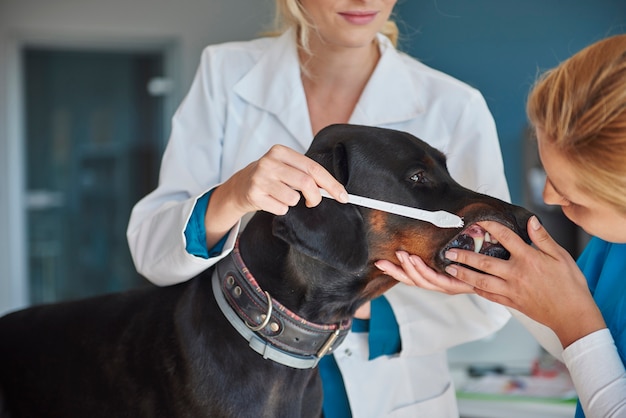Itchy Pets? Causes and Solutions for Summer Skin Problems

Itchy Pets? Causes and Solutions for Summer Skin Problems
When summer arrives in Alpharetta, longer days and warmer weather mean more time outdoors for our pets—but it can also bring a wave of skin problems that leave dogs and cats miserably scratching, biting, or losing fur. If you find yourself searching for a “vet near me” because your pet just can’t stop itching, you are not alone. At Alpharetta Animal Hospital, located conveniently at 80 Milton Avenue, Alpharetta, GA 30009, our experienced veterinary professionals understand how frustrating pet skin problems can be for both you and your furry family member. This blog will explore the most common causes of itchy skin during the hot Georgia months, how to spot the signs of trouble, and the best itchy pets solutions—ranging from professional veterinary care to smart home prevention. We’ll also highlight when it is time to schedule an appointment for a comprehensive pet exam and how our team can help restore your pet’s comfort. Whether you’re seeking pet skin care in Alpharetta or searching for the best veterinarian near me, read on to learn how to help your pet enjoy a comfortable, itch-free summer.
Recognizing Pet Skin Problems: When Is It More Than Just an Itch?
Many pet owners notice occasional scratching or licking, but frequent, intense, or sudden changes in your pet’s skin or coat can signal a deeper issue. Recognizing the signs of pet skin problems in Alpharetta early allows you to seek veterinary intervention before the condition becomes severe or leads to infection.
Key symptoms that indicate your pet may be experiencing a skin problem include persistent itching or scratching that doesn’t improve with distraction, excessive licking or chewing at certain areas, redness or inflammation of the skin, and visible hair loss in patches. You may also observe scabs, open sores, or an unpleasant odor coming from the skin or ears. Other signs are flaky or greasy skin, changes in coat texture, and behavioral changes such as restlessness or irritability. If you notice any of these warning signs, your pet might benefit from a comprehensive pet exam to pinpoint the cause and start the right treatment.
What Causes Itchy Skin in Pets During Summer?
Understanding the underlying causes of pet skin problems in Alpharetta is the first step towards finding lasting relief. Georgia’s warm, humid summers create the perfect conditions for several common culprits to flourish.
Allergies and Environmental Triggers
One of the most frequent reasons for itchy pets during the summer months is allergies. Pets, like people, can develop allergic reactions to environmental factors such as pollen, grass, mold spores, or even dust mites. When these allergens come into contact with your pet’s skin or are inhaled, they can trigger inflammation, intense itching, and skin irritation. Seasonal allergies in Alpharetta tend to spike as temperatures rise and local plants bloom, so it’s not unusual to see a surge in itchy pets solutions being sought during this time.
Fleas, Ticks, and Parasites
Another major cause of pet skin problems near me is the increased risk of fleas and ticks. These parasites thrive in warm weather and can quickly infest pets that spend time outdoors. Flea bites often cause severe itching, allergic reactions, and in some cases, lead to flea allergy dermatitis—a hypersensitivity to flea saliva that results in redness, scabbing, and hair loss. Ticks, while less likely to cause itching, can transmit serious diseases and should always be removed promptly and carefully.
Hot Spots and Bacterial Infections
Hot spots, known medically as acute moist dermatitis, are painful, inflamed areas that develop rapidly due to constant licking, biting, or scratching. They often occur as a secondary result of allergies or flea infestations but can also be triggered by moisture trapped under thick coats or after swimming. Once the skin barrier is compromised, bacteria can quickly multiply, leading to infection and worsening the discomfort.
Food Allergies and Sensitivities
Though less seasonal, food allergies or intolerances can present as chronic or recurring skin problems in pets. Common triggers include certain proteins, grains, or additives found in commercial foods. Symptoms may appear as persistent itchiness, ear infections, or gastrointestinal upset alongside skin issues.
Other Contributing Factors
In addition to these main causes, factors such as poor grooming, hormonal imbalances, and underlying health conditions can contribute to pet skin problems in Alpharetta. Pets with compromised immune systems or those on certain medications may be more prone to infections or delayed healing.
Professional Treatment Options for Pet Skin Problems in Alpharetta
When home remedies or over-the-counter solutions fail to provide relief, it’s time to seek veterinary care for your pet’s skin problems. At Alpharetta Animal Hospital, our veterinary team is equipped with advanced diagnostic tools and a wide range of treatment options to address itchy pets solutions effectively and compassionately.
Comprehensive Diagnostic Approach
Our veterinarians begin with a thorough physical examination to assess your pet’s skin, coat, and overall health. Diagnostic steps often include skin scrapings to check for mites, cytology to identify bacteria or yeast, and allergy testing to pinpoint environmental triggers. In some cases, blood tests or dietary trials are recommended to rule out underlying conditions. For more complex cases, our in-house diagnostic laboratory services in Alpharetta allow us to provide rapid and accurate results, helping to tailor an individualized treatment plan.
Medical Management and Relief
Treatment options for pet skin problems near me depend on the underlying cause but may involve topical therapies such as medicated shampoos, sprays, or creams to soothe inflammation and control infections. For allergies, antihistamines, corticosteroids, or newer immunomodulatory medications can provide relief, while strict flea and tick prevention is critical during the summer months. In cases of food allergies, our veterinarians may recommend a prescription elimination diet to identify and avoid problem ingredients.
If your pet’s skin issue has led to secondary infections, antibiotics or antifungal medications may be prescribed. For more severe cases, such as chronic ear infections or abscesses, surgical intervention may be necessary. Our team is also skilled at providing supportive care, including pain management and wound care, to ensure your pet’s comfort throughout recovery.
Supportive Services for Skin and Coat Health
Regular grooming plays a key role in preventing and managing many skin conditions. Our Grooming & Bath services in Alpharetta can help keep your pet’s coat clean, free from mats, and less prone to trapping allergens or moisture. Professional grooming also allows for early detection of skin problems that might otherwise go unnoticed.
Preventing Summer Skin Problems: At-Home Care and Lifestyle Tips
While some pet skin problems require veterinary intervention, there are several steps you can take at home to minimize risk and keep your pet comfortable.
Regular bathing with a veterinarian-approved shampoo can help remove allergens and prevent the buildup of oil or debris on the skin. Brushing your pet frequently not only removes loose hair and dirt but also helps distribute natural oils for a healthier coat. Keeping your home environment clean by vacuuming carpets and washing bedding can reduce exposure to dust mites and pollen.
Using year-round flea and tick preventives recommended by your veterinarian is essential for pets in Alpharetta and surrounding communities. Checking your pet’s skin after outdoor walks for signs of parasites, burrs, or cuts can catch problems early. If your pet has known allergies, limiting outdoor time on high pollen days or wiping paws after walks may provide additional relief.
Feeding a balanced diet tailored to your pet’s specific needs supports overall skin and coat health. If you suspect a food allergy, consult your veterinarian before making any changes, as dietary trials need close supervision for accurate results.
When to Seek Veterinary Care for Pet Skin Problems
Some cases of itching or minor skin irritation can be managed with home care, but there are clear signs that indicate your pet needs professional veterinary attention. If symptoms persist for more than a few days, worsen rapidly, or are accompanied by hair loss, open wounds, or behavioral changes, contact your veterinarian. Other indicators that it’s time to schedule an appointment include the presence of fleas or ticks that you cannot control, signs of infection such as swelling or odor, or if your pet becomes lethargic or stops eating.
Delaying treatment can result in more severe infections, chronic skin problems, or unnecessary suffering for your pet. At Alpharetta Animal Hospital, our team of veterinarians is here to provide prompt, compassionate care and help your pet find relief from even the most stubborn summer skin issues.
Take Action: Help Your Pet Enjoy a Comfortable, Itch-Free Summer
Summer skin problems can turn a season of fun into a time of frustration for both pets and their people. By recognizing the signs of trouble, understanding the causes, and taking proactive steps to prevent and treat itchy pets solutions, you can help your furry companion enjoy all that summer in Alpharetta has to offer.
If your pet is struggling with skin irritation, don’t wait for the problem to get worse. Schedule an appointment with our veterinary team at Alpharetta Animal Hospital for a comprehensive pet exam or to discuss our full range of Grooming & Bath services in Alpharetta. Our goal is to be the quality vet near me you can trust for lasting itchy pets solutions and personalized guidance.
Call us today at (770) 475-7613 or visit our location at 80 Milton Avenue, Alpharetta, GA 30009 to book your pet’s appointment. Our veterinary professionals are committed to supporting the health and happiness of pets in Alpharetta and surrounding communities all year long.
The information provided in this blog is for educational purposes only and should not be used as a substitute for professional veterinary advice, diagnosis, or treatment. Always consult your veterinarian for specific questions or concerns about your pet’s health.


















